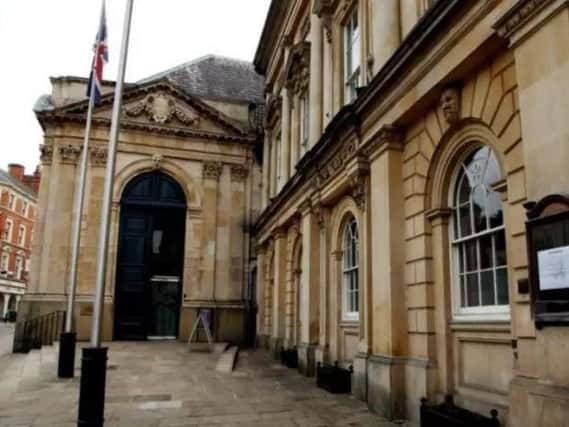Decorated British Army major 'died of natural causes' at Northampton General Hospital, inquest hears


Major General Alastair Duncan passed away on July 24, 2016 after a hole appeared in his intestine.
The inquest was held to determine the circumstances of his death. The Army veteran, who served for 32 years, had often complained about abdominal pain and concerns were raised by his family that more might have been done to monitor his complaints to staff.
Advertisement
Hide AdAdvertisement
Hide AdAssistant Coroner Dr Philip Barlow concluded Major General Duncan had died of natural causes, and that there was little that could have been done to prevent his death once his health began to deteriorate on the evening of July 23.
"I accept the medical cause of death of 1a) multiple organ failure, 1b) sepsis, and 1c) perforation of the colon.
"I also accept the evidence given that there was a sudden deterioration of his condition on the evening of July 23.”
At 9.20pm on July 23 Major General Duncan was observed to be unwell by St Andrew's staff and tests were performed on him.
Advertisement
Hide AdAdvertisement
Hide AdTwo hours later, at 11.25pm, a further set of observations showed an obvious change in his condition. At 12.14am a doctor was called by the nurse, and at about 1am the doctor advised Major General Duncan be transferred to a hospital, and an ambulance was called.
A CT scan undertaken at NGH revealed a perforation of his colon. Major General Duncan’s wife was contacted and she gave the go-ahead for an operation.
Former NGH surgeon Mr Pereira, giving evidence, told the coroner the chances of mortality were high before the operation. During the operation, Mr Pereira discovered a large area of contamination and after a discussion in the theatre, it was decided not to proceed any further, given the small likelihood of survival.
Major General Duncan passed away later that afternoon.
Major General Duncan’s wife had raised concerns in her evidence that not enough was made of her report to staff that her husband, on July 21, had complained of severe stomach pains.
Advertisement
Hide AdAdvertisement
Hide AdAlthough he frequently cited the pains, Mrs Le Brun told staff that this instance was different to previous episodes.
Mrs Le Brun’s belief was that this could have been a warning sign, that it was too coincidental for this episode to occur three days before Major General Duncan’s death and that St Andrew's staff should have made a record of her concerns in their system.
However, coroner Dr Barlow concluded that the medical evidence did not find a way of linking those two events, and that the staff at St Andrew’s had escalated their concerns as was expected of them as healthcare professionals.
“The perforation must have occurred on the evening of July 23,” said Dr Barlow.
Advertisement
Hide AdAdvertisement
Hide Ad“Mr Pereira was very clear that was the cause of the deterioration.”
Dr Barlow added that it was not possible for the intestine tear to have happened on July 21 because Major General Duncan was walking around the ward, eating and drinking.
“I’m satisfied that the evidence is those concerns were escalated,” said Dr Barlow.
"I don’t accept that there was any evidence of gross failure or systemic neglect.”
Advertisement
Hide AdAdvertisement
Hide Ad“In the evidence we have heard, even if Major General Duncan had been transferred earlier, it wouldn’t have affected the outcome,” said Dr Barlow.
“Effectively, the die was cast at the time of the perforation. Major General Duncan would not have survived any operation.”
He added: “It has not been possible to identify the cause of the bowel perforation.
“There is nothing in the evidence that it had an unnatural cause.”
Advertisement
Hide AdAdvertisement
Hide AdDr Barlow concluded Major General Duncan died of natural causes.
“It’s right to add that it’s very clear the enormous dedication and care that was given to Major General Duncan by his wife,” said Dr Barlow of Mrs Le Brun, who would drive from Somerset twice a week to visit her husband.